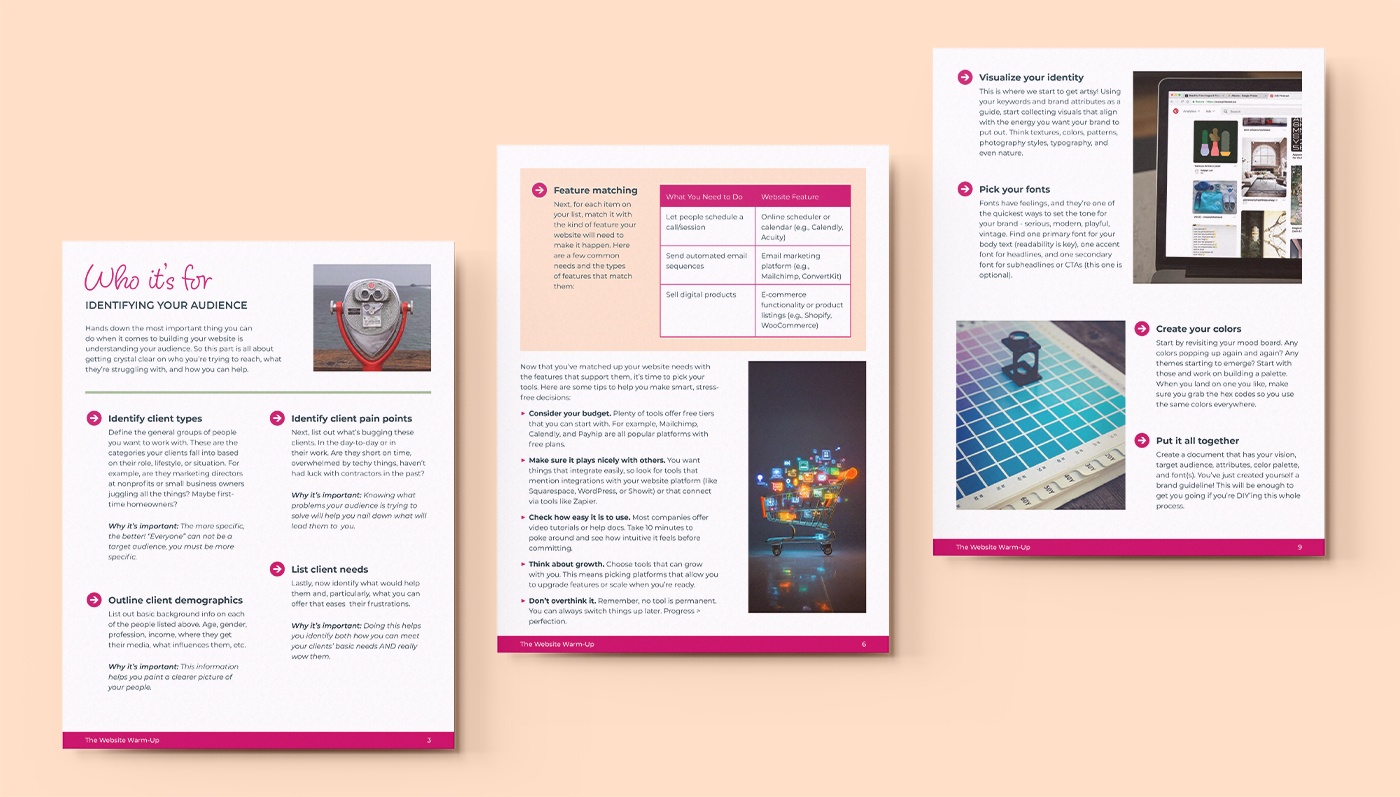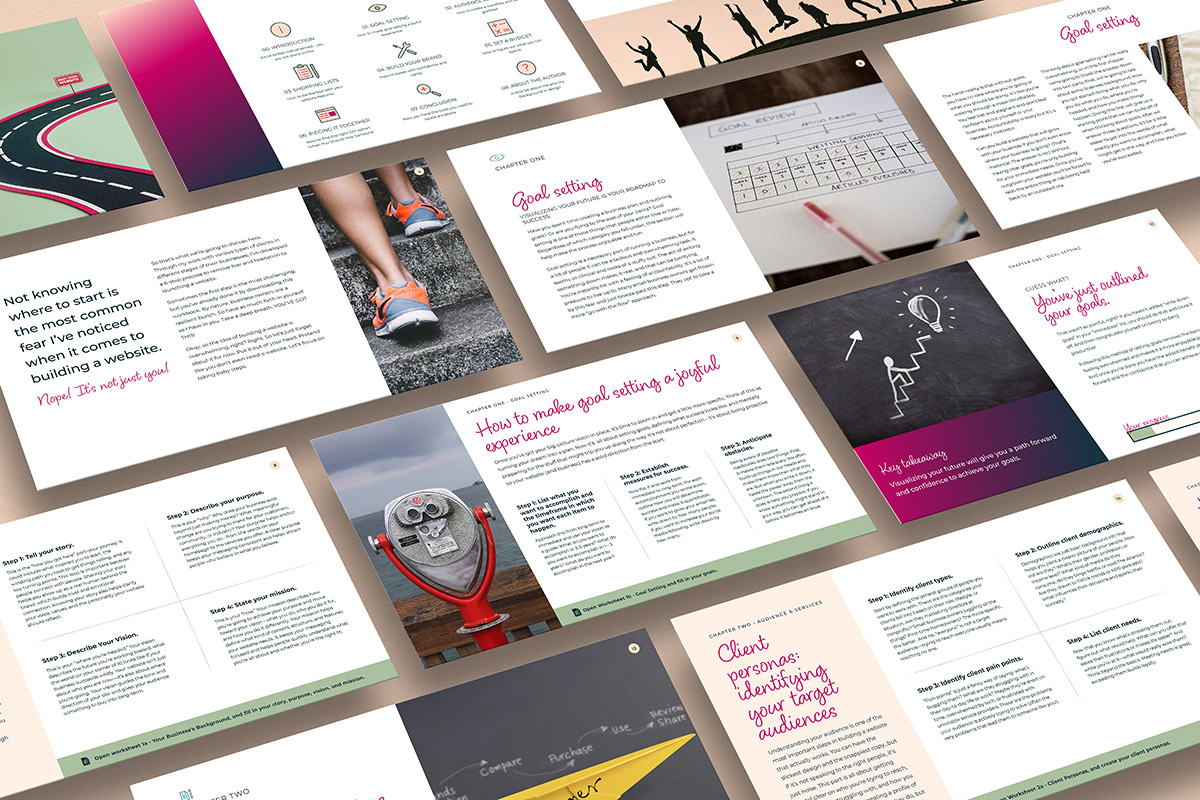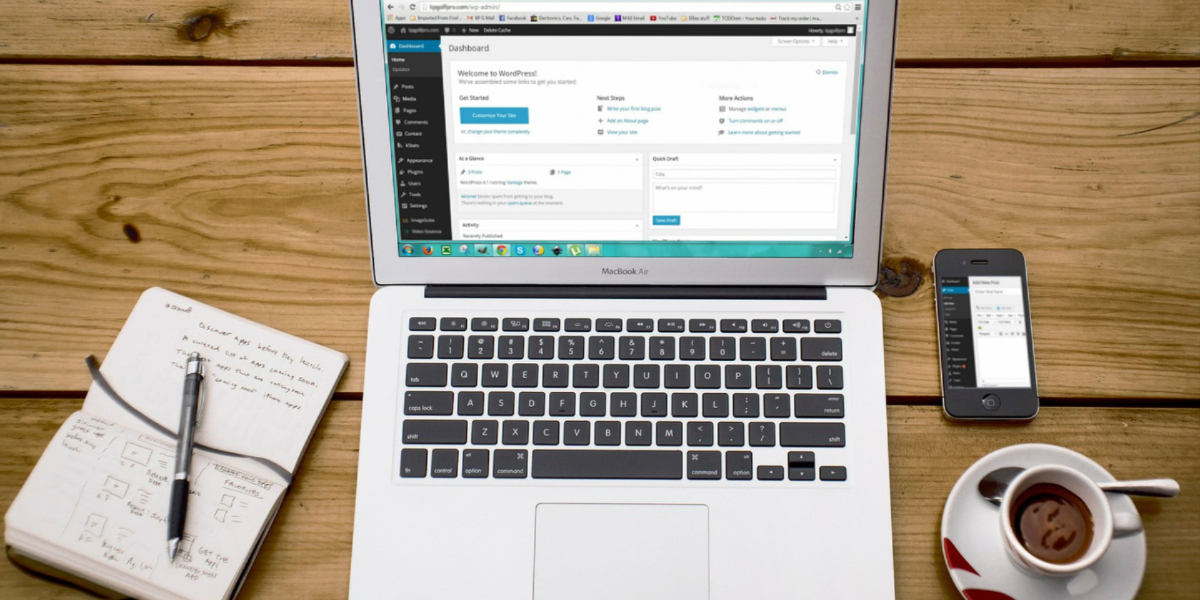How do you know how much a website should cost? Here's what you should include into your budget.
If you’re a small business owner, startup, or nonprofit in need of a website, the first thing on your mind is probably “what’s this going to cost?” It’s a good question that sadly has no good answer. There’s no formula that you can use to help figure it out since there are just too many variables in play.
The only answer I can give you is that it should cost what you can afford, regardless of whether that’s $0 or $1,000,000. You have to start with your budget first and then go from there. Once you know what you can spend, you’ll know how you can allocate those funds.
So where does that money go? I’m glad you asked! While there’s no formula for what a site should cost, there are a few items that all websites have in common: content, platform, and hosting.
Let’s break these down so you have an idea what to expect to budget for each one. The costs listed below are just a guide, so be sure to do your own research and make decisions that are best for your business and goals.
We’ll start with the easy things first: the content. You may not necessarily need to budget for this stuff since you can do a lot of it on your own. But it wouldn’t hurt to reserve a little extra just in case.
Copywriting
This is pretty straight forward. Who is writing your content? This is your “about me” page, your blog posts, your case studies, every word that appears on your website. Are you writing it or are you hiring a copywriter? If you plan on hiring someone, that’s an additional cost that can vary widely. Be sure to look into your options and plan accordingly. We’ll get to designers later but you should be aware that there’s a difference between a copywriter and a designer. If you hire a designer, they most likely won’t be writing your copy as well (unless you pay them to). So if you don’t plan on writing your content, be sure to set aside some funds to hire someone who isn’t a designer.
Budget: $0 if you do it yourself, anywhere from $30-100/hr if you hire a copywriter
Images
Luckily, we live in an age where stock photos suck a lot less than they used to. And you can find decent photos cheap and even free if you’re willing to put some time into sifting through things. Start with Unsplash (Instant Images if you’re using the WordPress plugin) and Pixabay first, but if you’re not finding the right thing you may need to purchase images. Sites like 123RF, iStock, Adobe, and Shutterstock charge for credits or a subscription where you can download a certain number of photos each month. You’ll want to look through their respective libraries before signing up, otherwise you’re paying for something you won’t use. When creating your budget, it’s wise to account for stock photos just in case. For more info read my post on picking the best stock photos.
Budget: $0 if you use Unsplash or Pixabay, $30-80+ if you need to purchase stock photos
Ok, let’s move on to the more tech related items!
Platform
This is where your website is built and what content management system you’re using. The biggest difference is who “owns” the content. DIY sites like Wix, Squarespace, and Shopify are less expensive and provide all-in-one packages, but you don’t have access to your database of content. Platforms like WordPress and Drupal affords complete control over your website and provide a lot more flexibility, but are more expensive to build and maintain. You’ll need to make sure you know what your goals for your website are before you get locked into an option. Otherwise you risk building a site that can’t grow with your business. Are you planning on putting this together yourself or would you prefer to hand it off to someone else?
Time is money
When deciding which route to go, consider the cost/benefit of each. DIY is cheaper, but will require a time commitment on your end and some level of tech savvy. Hiring it out will be less of a headache, but it can become quite expensive depending on what your needs are and who you hire. If you have the budget to hire someone, do it. Your site will be up and running and will be exactly what you want a lot sooner than if you DIY.
If you have zero budget to hire someone to build your site, KEEP IT SIMPLE. We have something in the tech industry called the “Minimum Viable Product”, or MVP. It means your website includes just enough features for your existing or early customers, and with their feedback, you’ll have information to add more in the future. Don’t try to do all the fancy things in your wish list. Save that for when you get more comfortable with the platform or have the budget to hire it out.
Budget: DIY sites range from $0-$29/month, hiring someone would realistically be anywhere between $300-$10,000+*
*YIKES this is a huge range isn’t it? It’s impossible to give an accurate ballpark without knowing exactly what your needs are. If you want someone to build out a Squarespace for you, you might be able to get this done for around $300-500. If you want a custom built site with memberships, learning management system, and online store, expect to pay closer to the $10k mark.
Plugins or addons
Give some consideration to the functionality of your website. Do you sell products? Will clients schedule meetings? Do you offer online workshops or courses? Are you charging for your content? Make a master list of everything you want your website to do, and give yourself plenty of time to think this through. I’m talking days. Rushing through this list can result in added costs down the line. Be sure to verify that the platform you choose can support the plugins or addons you need!
Budget: as low as $0 to start, but can balloon out to $400+ down the road
And now we’ll get even more technical and move on to hosting and everything in that realm.
Hosting
If you’re using a DIY site like Wix or Squarespace, hosting will be included in your monthly subscription. You’ll only need to worry about hosting if you’re using WordPress or having a custom site built. There are a lot of options available out there, including DreamHost, GoDaddy, and HostGator, to name a few. If you’re just getting started, a plan on a shared server will work just fine. You probably don’t have to worry about a VPS or dedicated server just yet! Hosting companies often list “sale” prices at ridiculously low rates, so be sure to check the prices listed to see how long you get that rate for and what it’ll cost once you renew.
Budget: $35-120+ per year, depending on the billing cycle and plan you choose
Domain name
Your domain name, like melissazalinski.com, is what your users enter into their browser to find your website. If you want a custom one and you’re not using a DIY platform, you’ll need to purchase it from a domain name service like SquareSpace, GoDaddy, Namecheap, DreamHost, etc. There are a TON of places out there that sell domain names. It’s just a matter of poking around until you find a good deal.
Pro tip: some sites offer domains that others don’t, so if you don’t find what you’re looking for on one, try another.
If you’re using a DIY platform like SquareSpace, Wix, or Shopify, you can purchase a domain name through them. And in some cases they offer a free domain if you sign up for a year subscription. Most hosting companies will offer this free domain name deal as well. You’ll also want to add privacy protection. When you purchase a domain, all of your personal information, along with the domain name, gets added to an online registry. That’s out for all of the public to see, so if you don’t want your home address publicly available, get privacy protection. This usually is an additional $10 or so on top of the domain name cost.
Budget: $0 in some cases, (for the first year), but you can expect to pay around $10-30/year.
SSL Certificate
This is one of those “WTF IS THAT” items that most people don’t consider when building a website. Basically, it’s extra security if you’re accepting payments online. You know how some websites are just http://domainname.com and some are https://domainname.com? The extra “s” means secure! DIY sites will include this, but if you’re using WordPress, you’ll need to pay for this through your hosting company. Check out my post about taking payments on your website for more info.
Budget: $50-80 depending on your hosting. (DIY sites include this)
Ongoing maintenance, updates, and support
Who is going to be updating the content on your website? Will you be doing it yourself or do you want to hire that out? And what about the ongoing maintenance, including updates and upgrades? The DIY sites build this in, but if you’re using WordPress, you’ll want to account for this in your budget. Making sure your website is running smoothly at all times is pretty important! Budget: $0 for DIY sites or if you’re managing it yourself, hiring it out can vary greatly, but you can expect anywhere between $35-150/hr.
Well there we have it. This info will at least give you a baseline for how much things cost and what you can expect to budget for each aspect of your website. If you need more guidance, consider booking a consultation with me here. I can help put you on the right path to a website that will work now and grow as your business expands.







